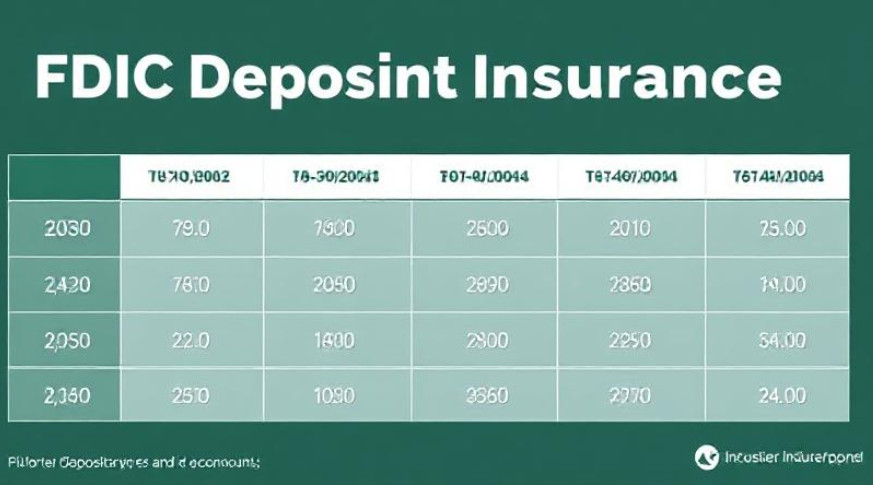The BlockFi Rewards Visa Signature Credit Card is an excellent choice for those who want to earn cashback in the form of cryptocurrency. It’s known for its straightforward rewards structure:
• 1.5% cashback on every purchase in Bitcoin for the first $50,000 spent annually.
• Earn 2% cashback in Bitcoin on every dollar spent over $50,000 annually.
Additional features:
• No annual fee for the first year; $200 annual fee thereafter.
• No foreign transaction fees.
• Ability to earn additional Bitcoin rewards through the BlockFi Loyalty Program.
• The card is available to clients in the BlockFi Interest Account (BIA) service.
Best for Rewards Variety: Gemini Credit Card
The Gemini Credit Card stands out for offering a unique rewards structure with the ability to earn a variety of cryptocurrencies. The rewards include:
• 3% back on dining.
• 2% back on groceries.
• 1% back on all other purchases.
Rewards are earned in real-time and can be converted into any of the 40+ cryptocurrencies supported on the Gemini platform.
Additional features:
• No annual fee.
• No foreign transaction fees.
• The Gemini app provides real-time rewards tracking and management.
• A waitlist is available for interested users.
Best for Travel Benefits: Binance Visa Card
The Binance Visa Card is designed for crypto enthusiasts who love to travel. It offers competitive rewards in the form of Binance Coin (BNB) and includes travel-related perks:
• Up to 8% cashback in BNB for everyday purchases.
• Access to Binance Card VIP benefits, including airport lounge access and travel insurance.
Additional features:
• No annual fee.
• Wide acceptance globally wherever Visa is accepted.
• Real-time cashback conversion to BNB.
• Availability for users in eligible regions.
Important Considerations:
1. Waitlists and Availability: Many crypto credit cards, including some mentioned here, may have waitlists or limited availability based on geographic regions. Users should check the current status and availability.
2. Cryptocurrency Volatility: Keep in mind the inherent volatility of cryptocurrencies. The value of rewards earned can fluctuate based on the market prices of cryptocurrencies.
3. Staking Requirements: Some cards may require users to stake a certain amount of cryptocurrency to access higher rewards or additional perks. Evaluate whether staking aligns with your investment strategy.
4. Regulatory Environment: Cryptocurrency regulations vary by country, and users should be aware of the legal and regulatory landscape in their jurisdiction before applying for crypto credit cards.
It’s essential to thoroughly research and compare the terms, rewards, and features of different crypto credit cards to find the one that best aligns with your preferences and financial goals.
Best for Bigger Spenders: BlockFi Rewards Visa® Signature Credit Card
The BlockFi Rewards Visa® Signature Credit Card was known for its attractive offer for bigger spenders, offering a flat 2% back in crypto on every purchase over $30,000 in annual spend. Additional features included no annual fee, no foreign transaction fee, an additional 0.25% bonus on eligible BlockFi trades, and a $30 reward per successful new customer referral.
Note: The availability of this offer is subject to change, and it’s advisable to check for the latest updates.
Best Hybrid Credit Card: SoFi Credit Card
The SoFi Credit Card stood out as a hybrid credit card that earned traditional cash-back rewards. With a flat, unlimited 2% back on all eligible purchases, it provided versatility in redeeming rewards. Users could deposit cash back into a traditional bank account, use it to pay down debt with SoFi, or invest it in assets through the SoFi Invest trading platform. The card also allowed users with an active SoFi Invest account to redeem cash back directly for cryptocurrency.
Additional features included a drop in cash-back rewards to 1% when redeemed for a credit card statement credit, a potential APR reduction with 12 on-time monthly payments, no hard credit inquiry as a condition of application, and no annual fee.
Best for Everyday Rewards: Gemini Credit Card
The Gemini Credit Card, although in waitlist mode, was designed for everyday spending with a rewards program that offered:
• 3% back in crypto on dining purchases (up to $6,000 in eligible category spend).
• 2% back in crypto on grocery purchases.
• 1% back in crypto on all other purchases, including dining purchases above the $6,000 limit.
Additional features included automatic and immediate redemption of rewards, the option to choose Bitcoin (BTC) as the default currency or opt for more than 40+ other cryptocurrencies, no annual fee, no foreign transaction fees, and no exchange fees to redeem crypto.
Methodology: How We Select the Best Credit Cards for Cryptocurrency Rewards
The methodology for selecting the best cryptocurrency credit cards considers several factors related to the overall cost and usability of these products. The rewards rate is a crucial factor, emphasizing a higher rate of return in various spending categories. The evaluation also considers other features such as annual fees, foreign transaction fees, and the ease of redeeming rewards for cryptocurrencies. These factors collectively contribute to identifying credit cards that provide value to users interested in cryptocurrency rewards.
Rewards Redemption and Access to Crypto Holdings:
1. Rewards Redemption Process:
• Preference for cards that automatically redeem rewards into linked accounts in real-time.
• Preference for seamless redemption processes without added cost and complexity.
2. Card Type:
• Recognition of the distinction between crypto credit cards and crypto debit cards.
• Acknowledgment that some cards require staking and draw purchases directly from the balance.
• Acknowledgment that flexibility, such as ATM withdrawals from crypto balance, may be a benefit for some users.
• Drawback highlighted for users seeking to earn crypto rewards on credit.
3. Card Fees:
• Recognition of common fees associated with crypto credit cards, including annual fees.
• Acknowledgment that many crypto cards do not charge annual fees.
• Consideration of other potential fees, including foreign transaction fees, crypto liquidation fees, overlimit withdrawal fees, crypto funding fees, and crypto exchange fees.
• Preference for cards with few or no additional fees to maximize the value of earned rewards.
4. Cryptocurrency Options:
• Acknowledgment that most crypto credit cards are compatible with major cryptocurrencies like Bitcoin and Ethereum.
• Consideration of coin selection as an important factor for more advanced users.
• Recognition of the preference for cards that allow users the option to take rewards in less common coins.
5. Card and Account Security:
• Emphasis on the critical importance of security in the crypto world.
• Recognition that it’s challenging for regular users to independently evaluate security claims.
• Preference for cards and issuers that offer flexibility in redeeming rewards in real-time and transferring them from hot wallets to cold storage.
• Skepticism toward cards requiring users to keep high crypto balances in linked wallets.
6. Digital Apps and Wallets:
• Acknowledgment that crypto cards are associated with digital financial apps, crypto wallets, or both.
• Recognition that the quality and usability of these apps and wallets are factors in the evaluation of associated cards.
7. Value-Added Features:
• Recognition that the best crypto credit cards offer value-added features in addition to cryptocurrency rewards.
• Examples of value-added features include cellphone protection policies, travel perks, shopping perks, and concierge services.
• Preference for cards that provide legitimate benefits beyond the cryptocurrency rewards programs.
These considerations collectively contribute to evaluating the overall value, usability, and security of crypto credit cards for users interested in cryptocurrency rewards.
Crypto Credit Card FAQs:
1. How Much Can You Earn With a Crypto Rewards Credit Card?
• Earnings depend on the specific card, with some offering returns on spending of 5% or even 8%.
• Attractive returns may require maintaining a minimum crypto balance or meeting other requirements.
• Crypto rewards have more upside potential as their value fluctuates daily.
2. How Much Does a Crypto Credit Card Cost?
• Cryptocurrency cards have indirect costs beyond headline fees, with additional fees for using crypto rewards for purchases.
• Crypto taxation is an emerging area, and earning and spending rewards may be taxable events.
• Users are advised to consult tax professionals for guidance on crypto taxation.
3. Are Crypto Credit Cards Safe?
• All credit cards carry some risk, including identity theft and financial fraud.
• Traditional credit cards have protections against financial loss due to stolen cards or numbers.
• Crypto credit cards generally have $0 fraud liability policies but may be vulnerable to theft if held in a hot wallet connected to the internet.
4. How Do You Access and Fund a Crypto Credit Card?
• Crypto credit cards can be used at any merchant that accepts major payment networks like Visa or Mastercard.
• Depending on the issuer’s policy, users may need to maintain a minimum crypto balance or can pay balances using fiat currency.
• Cryptocurrency debit cards use crypto funds in a linked account for charges, possibly incurring additional transaction charges when converting to fiat currency.
5. How to Choose the Best Cryptocurrency Rewards Credit Card:
• Considerations unique to crypto cards include the selection of cryptocurrencies available, reward disbursal methods, linking crypto wallets, and associated fees.
• Traditional factors like rewards rate, interest rate, repayment terms, non-crypto fees, and value-added features are also important.
• Users are encouraged to assess their priorities and trade-offs to choose a card that aligns with their preferences.
These FAQs provide insights into key aspects of crypto credit cards, addressing earning potential, costs, safety, usage, and factors to consider when choosing the best cryptocurrency rewards credit card.






